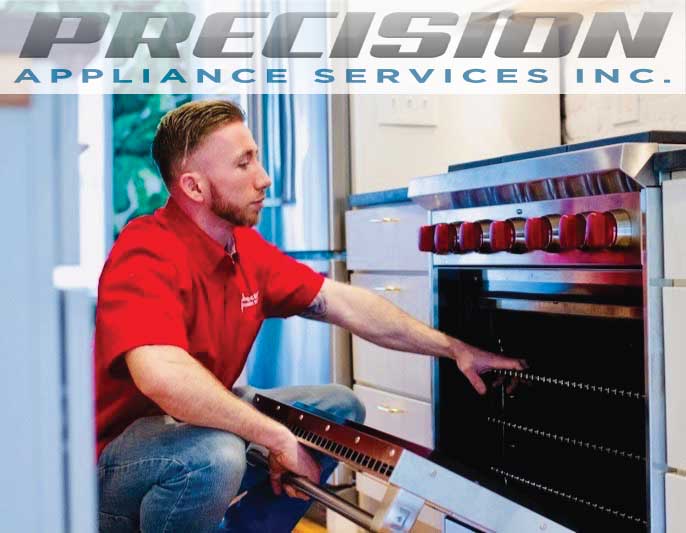The Ultimate Overview to Understanding Device Repair in your home
When your fridge stops cooling down or your stove refuses to heat, it can feel overwhelming. Comprehending home appliance repair work in the house can save you time and money. You'll find out to identify symptoms, utilize essential tools, and comply with a systematic troubleshooting procedure. But prior to you start, there are vital safety and security preventative measures you need to consider. What are one of the most usual troubles, and just how can you repair them? Let's check out the basics.
Typical Appliance Issues and Their Symptoms
When your devices begin acting up, it's essential to recognize the signs at an early stage. Neglecting them can cause bigger problems and pricey repairs. For example, if your refrigerator isn't cooling correctly, you might see cozy spots or condensation forming. This might show a falling short compressor or a blocked vent.Your dishwasher might show troubles with unclean recipes or unusual noises during cycles. If you hear grinding or clanking, it's time to investigate.A cleaning maker that won't rotate or drain can leave you with soaked laundry, suggesting a clogged drainpipe or a malfunctioning pump.Lastly, if your stove's temperature appears off or it takes for life to pre-heat, you could be handling a defective thermostat. By remaining alert to these signs and symptoms, you can attend to problems prior to they escalate right into significant fixings.
Crucial Tools for Device Repair Work
When you're taking on device repair services in the house, having the right tools is important. Fundamental hand devices like screwdrivers and pliers will aid you take apart and take care of different devices, while electric testing devices assure you're working safely with wiring. Let's discuss what you require to obtain begun on your fixing journey.
Basic Hand Tools
Having the right tools is vital for efficient appliance repair at home. Begin with a dependable screwdriver collection, including both flathead and Phillips kinds, as screws are typical in device assembly. Pliers are also vital; they assist with gripping, twisting, and cutting cords or little components. A set of needle-nose pliers can get to difficult situations quickly. You'll need an excellent flexible wrench for tightening or loosening nuts and screws. An energy knife comes in handy for reducing with packaging or insulation. Do not forget a tough workbench or surface area to safely arrange your tools and components. With these basic hand tools, you'll be well-prepared to deal with most appliance fixings that come your means.
Electrical Screening Tools
Alongside basic hand devices, electric testing tools play a necessary duty in home appliance repair. These tools aid you diagnose electrical problems and guarantee devices work securely. A multimeter is important; it determines voltage, current, and resistance, enabling you to identify problems rapidly. A non-contact voltage tester is an additional essential, allowing you identify live cords without making straight get in touch with, improving your safety. Secure meters are fantastic for determining existing circulation in cables without disconnecting them, conserving you time and effort. Additionally, circuit testers can swiftly check if outlets are working properly. By utilizing these devices, you'll improve your troubleshooting procedure and boost your repair service abilities, making home appliance upkeep a great deal much easier.
Step-by-Step Overview to Diagnosing Appliance Issues
When your appliance acts up, it can be irritating, however identifying the problem doesn't have to be overwhelming. You'll find out to recognize common problems and apply efficient fixing methods. Let's stroll with the steps to get your appliance back in working order.
Typical Device Problems

Troubleshooting Methods Discussed

Repairing Significant Kitchen Area Devices: A Closer Look
Have you ever wondered how to take on common concerns with your kitchen area home appliances? Repairing significant kitchen devices like fridges, stoves, and dish washers can be simpler than you assume. Begin by determining the issue-- whether it's a refrigerator not cooling down or a stove that won't heat up. Frequently, a simple reset or examining the source of power can solve the issue.For refrigerators, tidy the condenser coils and inspect the door seals. If your oven's not heating, check the heating aspect and thermostat. Dishwashing machines might just require a tidy filter or a reset to obtain them back at work. Always disconnect the device before diving into repair services to assure your safety.Don' t forget to get in touch with the individual guidebook wfcc appliance repair for particular fixing pointers associated with your model. With a little bit of perseverance and the right devices, you can confidently deal with device repair work and save money in the procedure!

Fixing Laundry Equipments: Tips and Techniques
When your washing appliances start breaking down, it can really feel overwhelming, however repairing them doesn't have to be a problem. Start by inspecting the power supply. Validate the appliance is connected in and the electrical outlet is working. Next off, inspect the door or lid button; a defective switch can stop the equipment from operating.For washers, if it's not spinning, look for out of balance lots. Redistributing the garments may resolve the concern. If your clothes dryer isn't home heating, clean the dust filter and inspect the air vent for blockages.Listen for unusual noises; they can show a trouble. If your device is dripping, examine the hoses for cracks or loose connections. Paper any kind of mistake codes displayed on digital displays, as they can lead you in identifying the issue. Consult the user manual for specific fixing ideas associated to your model.
Safety Precautions to Take Throughout Repair works
Prior to you begin any type of home appliance repair work, it's important to prioritize safety and security to prevent accidents or injuries. First, unplug the appliance or switch off the circuit breaker to ensure no power reaches it while you work. Usage protected tools to minimize the threat of electrical shock. Use security goggles see this here and gloves to protect on your own from sharp edges or debris (Dependable Refrigeration & Appliance Repair Service Washer repair near me).Make particular your office is tidy and well-lit, so you can see what you're doing. Maintain kids and pets far from the location to stay clear of distractions and potential risks. If you're taking care of gas home appliances, be additional cautious; look for leaks before proceeding.Take your time, and do not hurry through repair services. If you feel uncertain regarding any kind of step, it's better to stop and study than to presume. Following these safety measures will certainly aid create a more secure environment for your DIY home appliance fixing job
When to Call an Expert for Help
Exactly how do you recognize if it's time to contact a specialist for appliance repairs? If you have actually tried fundamental troubleshooting without success, it's a clear indicator. As an example, if your home appliance still won't begin or shows unusual sounds after resetting it, do not wait to look for expert help.When you notice leaks, smoke, or melting smells, focus on security and call a pro immediately. These issues can bring about more considerable damage or present dangers to your home.Also, if your home appliance is under guarantee, calling a specialist is typically the very best path. They can guarantee that repairs won't void your service warranty, conserving you money in the long run.Finally, if you're not sure or awkward with complicated repair services, it's smart to leave it to the professionals. Keep in mind, tackling complicated issues without the appropriate competence can cause costly mistakes. Trust an expert when unsure!
Regularly Asked Questions
Exactly How Can I Stop Appliance Problems in the Future?
To stop device troubles in the future, you must execute routine maintenance, check for deterioration, tidy filters, and prevent overloading. Staying proactive will certainly aid extend their life-span and maintain them running smoothly.
What Are the A Lot Of Common DIY Device Fixing Mistakes?
You could neglect security precautions, miss repairing actions, or make use of inaccurate devices when attempting DIY home appliance fixings. Hurrying the procedure or disregarding producer standards can bring about more substantial concerns and costly mistakes. Keep individual and informed!
How Do I Know if a Part Needs Substitute?
You can inform if a part needs substitute by looking for unusual noises, leakages, or irregular efficiency. If the device has a hard time to operate properly or reveals visible damages, it's likely time for a replacement.
Can I Make Use Of Generic Components for Appliance Repairs?
Yes, you can utilize common parts for appliance fixings, yet ascertain Look At This they work - Washer dryer repair service Dependable Refrigeration. Generic components could conserve you cash, however they could affect efficiency or durability, so weigh your options very carefully prior to deciding
What Warranties Cover Device Repair Works?
The majority of device warranties cover fixings for producing problems, but they often leave out damages from abuse. Check your service warranty terms very carefully, as some might call for utilizing certified professionals and initial parts for coverage to stay legitimate.
 Luke Perry Then & Now!
Luke Perry Then & Now! Mr. T Then & Now!
Mr. T Then & Now! Talia Balsam Then & Now!
Talia Balsam Then & Now! Batista Then & Now!
Batista Then & Now! Mary Beth McDonough Then & Now!
Mary Beth McDonough Then & Now!